Halal Diaries
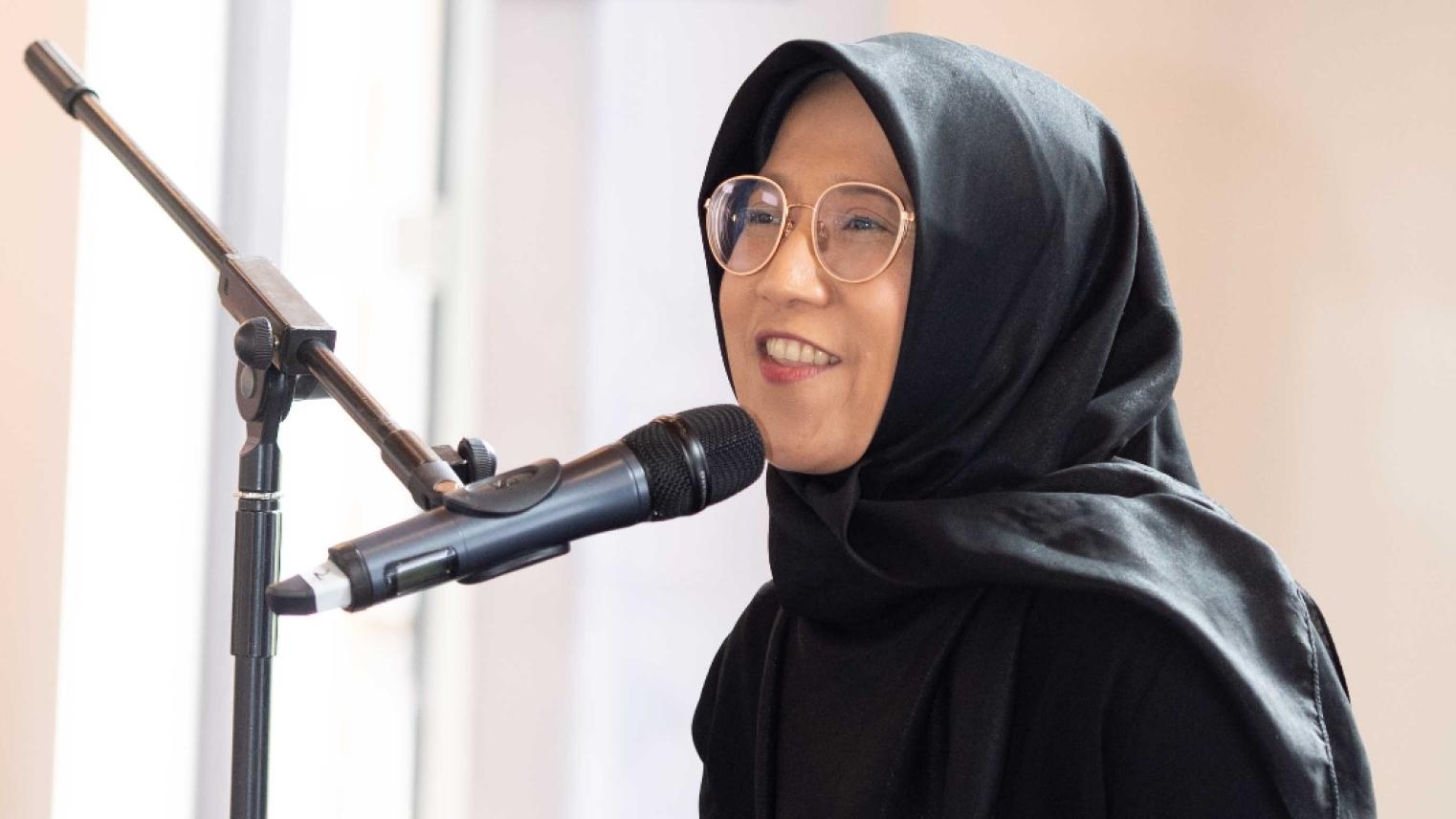
In 2021, she was awarded an ARC DECRA (Discovery Early Career Researcher Award). Last year, she was nominated for the Vice-Chancellor's Award for Teaching Excellence. This year, she has a buzzing academic exchange itinerary in Europe. This is the beginning of the second year of Dr Eva Nisa’s ARC DECRA project, and she’s on a roll!
With the reopening of international borders after nearly two years, it has become easier to conduct research on the Islamic cultural economy, including the halal industry, in Indonesia and Malaysia. In this context, Eva has recently been proactive with initiatives that demonstrate how her research has provided both scholarly, economic and sociocultural benefits beyond academia. So far, her research has contributed to vibrant conversations about the Islamic economy and halal industries in Indonesia, Malaysia, Australia and the greater region of Southeast Asia.
We recently caught up with Eva on the progress of her DECRA research and her forthcoming overseas opportunities, including an exciting stint teaching in Vienna, Austria.
What have you been busy with in the research space, and what are your plans in the near future?
Last year, I had a very productive year in relation to my DECRA research. I had the opportunity to conduct in-depth discussions with many key stakeholders in halal industries in Indonesia and Malaysia, and other countries, including Australia (Austrade) and Singapore Halal Development (Islamic Religious Council of Singapore or MUIS).
I have been involved in many Islamic economy and halal initiatives organised by both government and nongovernment key players in both countries. This includes the World Halal Business Conference Circuit, Melbourne Australia 2022 organised by the Ministry of International Trade and Industry, Malaysia (MITI Malaysia), and supported by the Australian Trade and Investment Commission (Austrade) and State Government of Victoria.
I was involved in a halal industry event organised in collaboration between the ANU Indonesia Project, the Indonesian Embassy and the Organisation of Islamic Cooperation (OIC). The event featured three speakers from the Australia Arab Chamber of Commerce and Industry, Venturenauts and the ANU. I was the representative for ANU. The attendees were ambassadors, high commissioners and deputy heads of mission from OIC and non-OIC member countries.
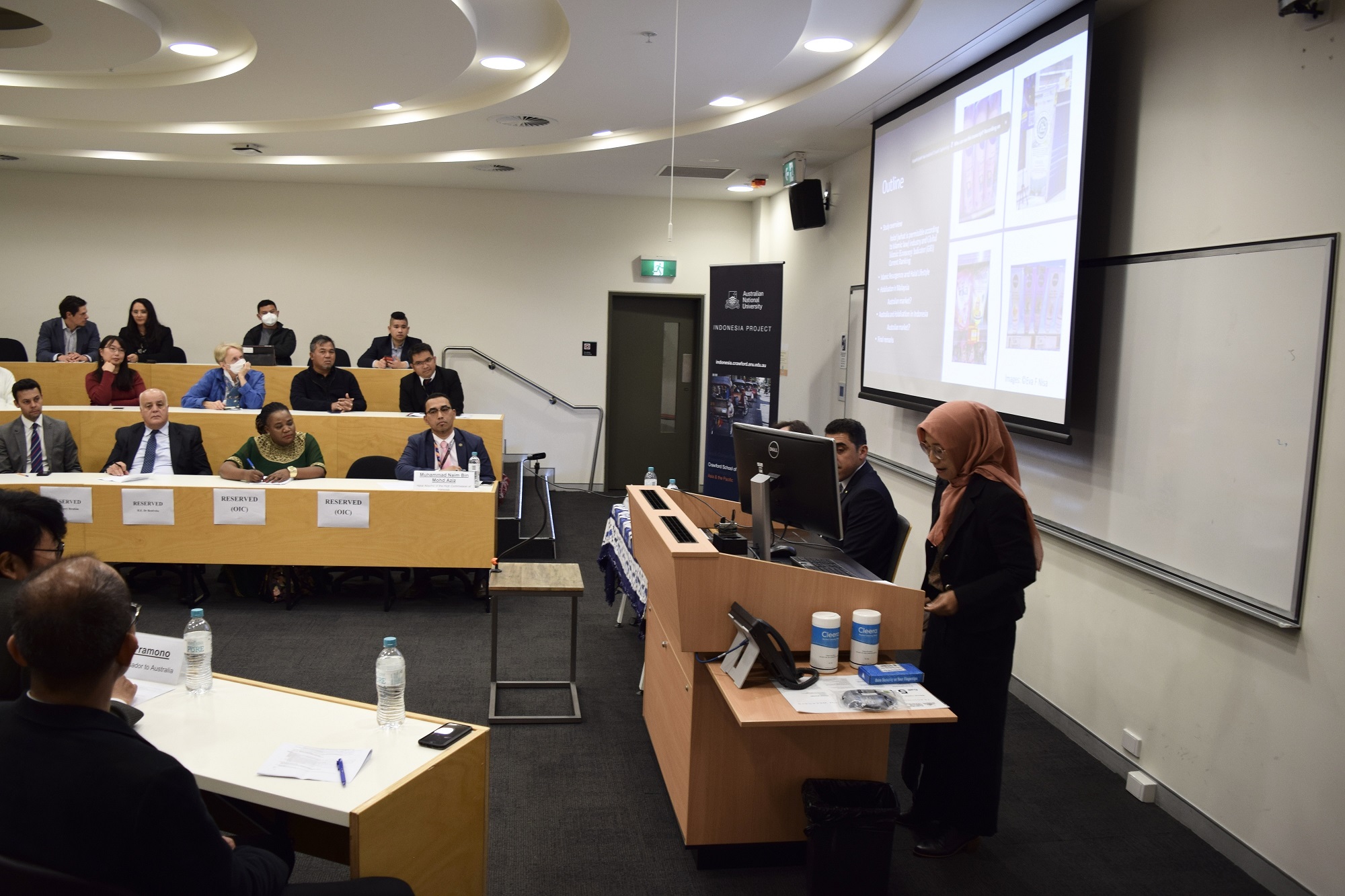
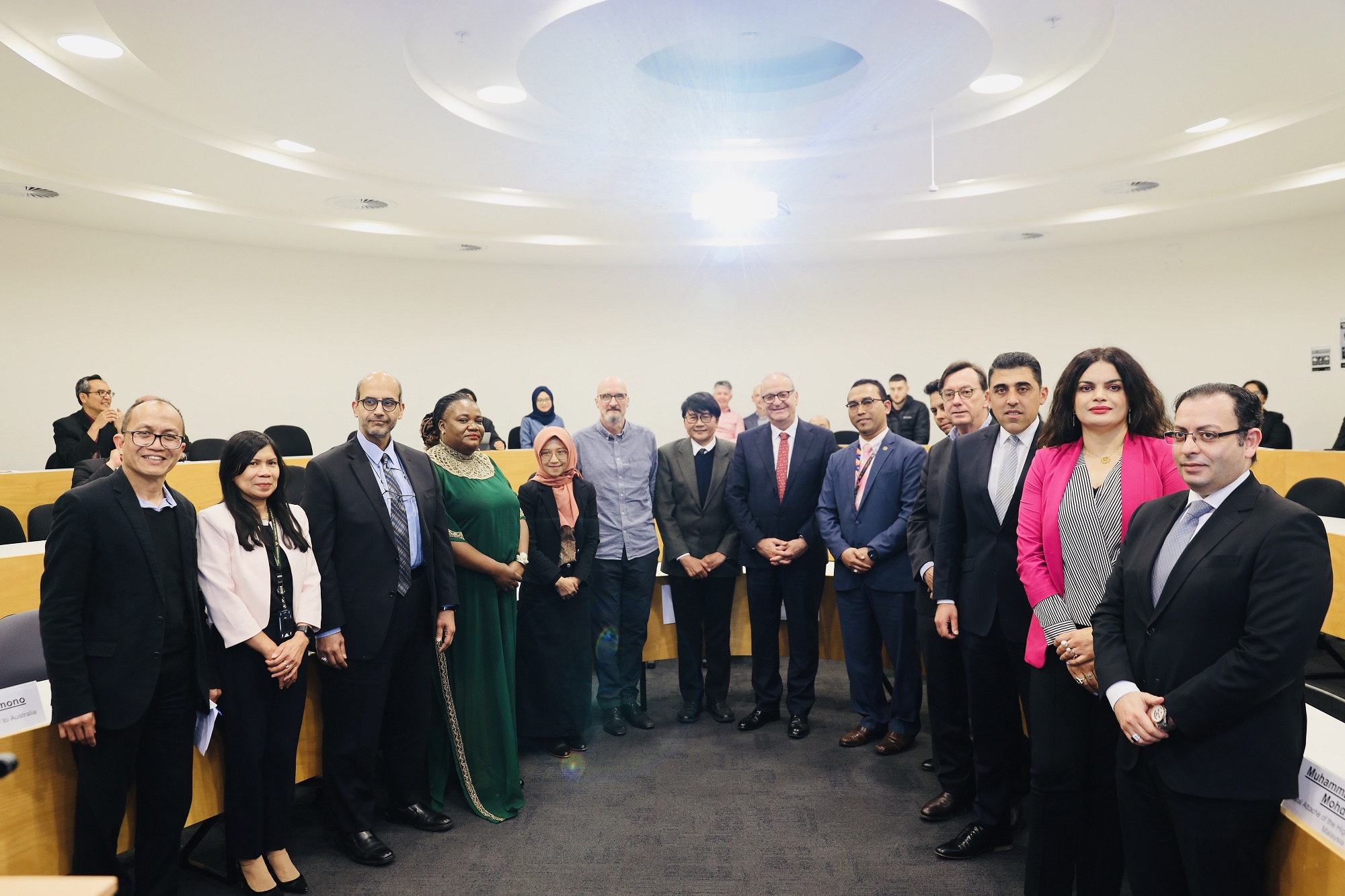
My strong connections to key government players within the halal industry in Malaysia and Indonesia have enabled me to facilitate network connections between them. I helped Malaysia's Halal Development Corporation (HDC)—which is Malaysia's halal body designed to boost the overall development of the halal industry in the country—meet Indonesia's National Sharia Economic and Finance Commission (KNEKS).
Through their first meeting, an initiative to develop a stronger collaborative relationship regarding the halal industry in both countries was born. In January 2023, they organised the Malaysia - Indonesia Halal Forum and Industry Engagement.
In the very near future, I plan on focusing on the most prominent Muslim-friendly tourism event, the hajj (pilgrimage). This is a significant event in the Islamic economy as evidenced by the outcomes reported—within the first five months of this year, 221,000 pilgrims from Indonesia and 31,600 from Malaysia will travel to Saudi Arabia for hajj. This year alone, Saudi Arabia will host 2 million pilgrims across the globe. The industry strives to recover its numbers to pre-pandemic levels. In 2019, an estimated 2.5 million people travelled for hajj, compared to 2022, when the numbers dropped to merely 900,000 pilgrims.
In addition, as my research develops, I will be expanding my research to cover the sustainable halal industry. I aim to unpack how key actors merge their industries and sustainability concepts, especially in relation to the environmental aspect of the halal industries. I am excited to embark on the Islamic cultural economy aspects of people, environment and economy.
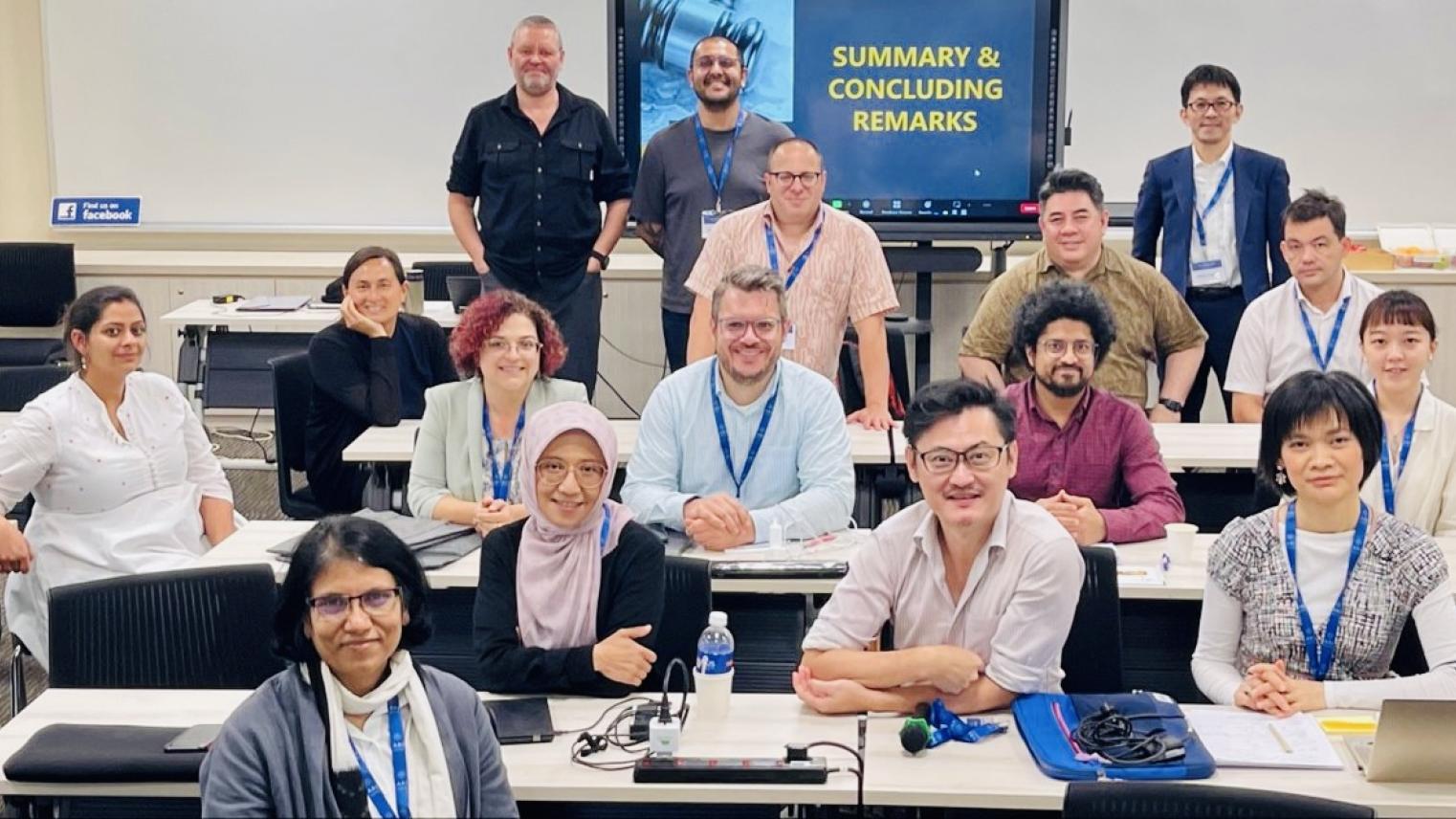
Tell us more about Vienna and why it’s significant?
I have received an invitation from the Department of Social and Cultural Anthropology, University of Vienna to partake in a visiting professorship. I will teach one of their summer courses starting in March this year.
The course will be for Master’s students, on a topic of my choice, which pertains to my current research on the Islamic cultural economy and halal industry. I will use a research-led approach to teach students about the relevance of the subject to the world, as the Islamic cultural economy and halal industries are thriving in Muslim and non-Muslim majority countries. The course will also cover broader issues on how to approach the anthropology of religion. This includes discussions on how anthropologists, using their ethnographic data, intervene in economic, socio-cultural and political affairs. Besides teaching this course, I will present a paper on my current research at their department seminar. This will be a wonderful chance for me to communicate my research to a broader academic audience in Austria and receive constructive feedback.
In addition to the visiting professorship invitation from the University of Vienna, I have another invitation for the same position from the Palacký University Olomouc, the second-oldest university in the Czech Republic and host of the 2021 European Association for Southeast Asian Studies. I will provide a guest lecture focusing on gender, youth, and the anthropology of religion for their PhD course.
Finally, I will meet with a leading expert in the halal industry, A/Prof Johan Fischer from Roskilde University (Denmark), who was a fellow panellist at the Inter-Asian Legalities workshop organised by The Asia Research Institute (ARI), National University of Singapore. The purpose of the meeting at Roskilde University is to discuss my contribution to his current book project and our future collaboration. I am very excited about this “European Summer academic itinerary”!
All of the undertakings at the University of Vienna, Palacký University Olomouc, and Roskilde University will be important for my DECRA research. They will demonstrate how my research has attracted significant interest within academia and the potential for international collaboration with leading experts in the field. In addition, it will broaden my collaborative networks with scholars from European universities across various disciplines.
What are your expectations or thoughts about the student community in Europe as compared to Australia? How do you think there could be more knowledge sharing and experiential exchange between student and academic community members globally?
I am very excited to meet students from European universities. Essentially, I just love to meet new students. My experiences teaching in Australia, New Zealand and Indonesia have brought me the joy of being surrounded by students from diverse backgrounds. I enjoy encountering diverse academic cultures and students from different backgrounds, because it reminds me that being an educator means being on a continuous journey of learning the craft of teaching.
Teaching is like writing, in that we need to practise to improve our skills. The skills will never be and should never be complete. Meeting new students from various backgrounds is an excellent way to challenge myself to adjust and improve my teaching skills.
The courses I will teach are mostly related to the Anthropology of Religion and the anthropological approach to gender. Given my academic and personal backgrounds, I think this will invite students to have richer discussions with me on issues regarding the role of religion and culture in shaping and colouring specific understandings of belonging and various gender discourses.
I am a veiled Indonesian Muslim academic teaching at a so-called "Western university" in Australia (ANU), and have been trained in classical Islamic studies traditions from al-Azhar University in Egypt, worked on various contemporary issues such as the halal industry, the digital Islamic economy, digital religion and gender-just readings of Islamic texts. Therefore, my first-hand experiences in encountering and adapting to multiple contexts in my study, teaching and research will enable the students to participate in vibrant discussions in my class. I believe my background also invites discussion on how we should understand religion and believers in the modern world.
My other expectation is related to the area of interest covering Southeast Asian Studies, including Indonesian and Malaysian studies. Southeast Asian studies and research on Southeast Asia have long been ongoing interests of students and academics in Europe. Scholars of Southeast Asian studies, for example, are familiar with the Austrian Robert Freiherr von Heine-Geldern, who is often regarded as the pioneer in the promotion of Southeast Asian studies. In 1923, he initiated the field of Southeast Asian Anthropology and his essay "Conceptions of State and Kingship in Southeast Asia" is considered one of the classics.
It would be interesting to observe interest in research on Southeast Asia, including anthropological research. This is the most exciting aspect to analyse, and I hope to also compare it to the interest in research on Southeast Asia in Australia.
In my opinion, the initiative these European universities have shown in inviting me should be applauded. Although it had become a common phenomenon in academia, the pandemic halted visiting professorship initiatives. I believe such initiatives are able to rejuvenate the direct interchange of ideas, refresh academic collaboration, and foster future collaborative academic research. This is mutually beneficial for both the participating faculty member and the sponsoring institution. The Head of Anthropology at CHL, Professor Assa Doron, has emphasises how great this opportunity is to initiate and cement stronger and more in-depth collaborations with Anthropology programs from other universities in Europe.
What are the three most exciting things about CHL?
a. World-class experts: CHL is a place where we can easily find world-class experts from various disciplines, including Anthropology, Southeast and Indonesian studies, focusing their research on Asia and the Pacific. They have had affiliations with many renowned international institutes and are enthusiastic about training the next generation of aspiring experts.
CHL is all about interdisciplinary engagement in the field of Asia and Pacific Studies. This is evident, for example, in how the two required foundational courses for Bachelor of Asian Studies are defined and taught. I am convening one of these foundational courses, ASIA 1030 Asia in the Pacific in Motion. The way I (or we) design the course is by inviting experts in our school and ANU in general from various disciplines to engage in discussing and debating some issues of contemporary significance in Asia and the Pacific. This includes those pertaining to cultural, social, political and economic changes. Therefore, this course is highly suitable for students from programs across ANU who wish to enrich their understanding of the region (and beyond).
b. Respectful and vibrant environment: CHL’s leadership have done an excellent job in fostering a respectful environment for our school community. In particular, we have exceeded expectations in the area of cultural diversity, which is one of our core values.
c. Cosmopolitan school community: We know that research and study on Asia and the Pacific within various disciplines has become increasingly popular as some countries across Asia have grown in importance worldwide and have become more assertive global powers. The cosmopolitan nature of our school community is well-equipped to support this kind of research and study. CHL has continuously retained our strengths in our areas of expertise.
As super excited Eva is about her academic adventures in Europe, the timing is interesting. It’s all happening during Ramadan fasting month.
This means she will have to start fasting (i.e., consume no food or liquids) from 4:09am and break her fast at 6:12pm. She good naturedly comments:
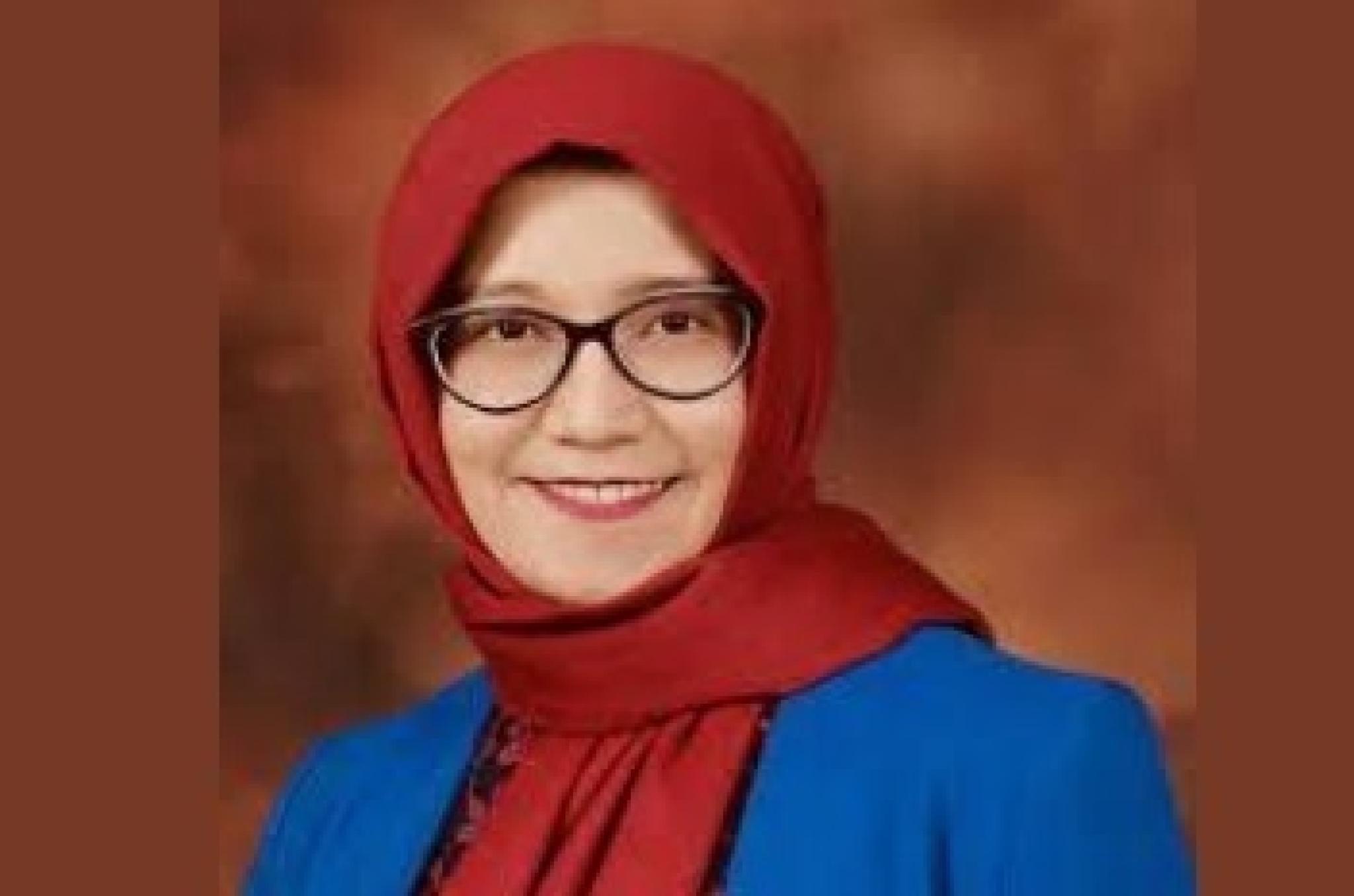
The good thing is that the duration of fasting in Europe is similar to Australia and Indonesia. I did experience a more challenging Ramadan during my postdoc studies in Germany at the University of Hamburg, when I had to fast for 19/20 hours per day!
We wish Dr Nisa all the best in Europe, and we will be sure to share some amazing snapshots of her experience in the near future!